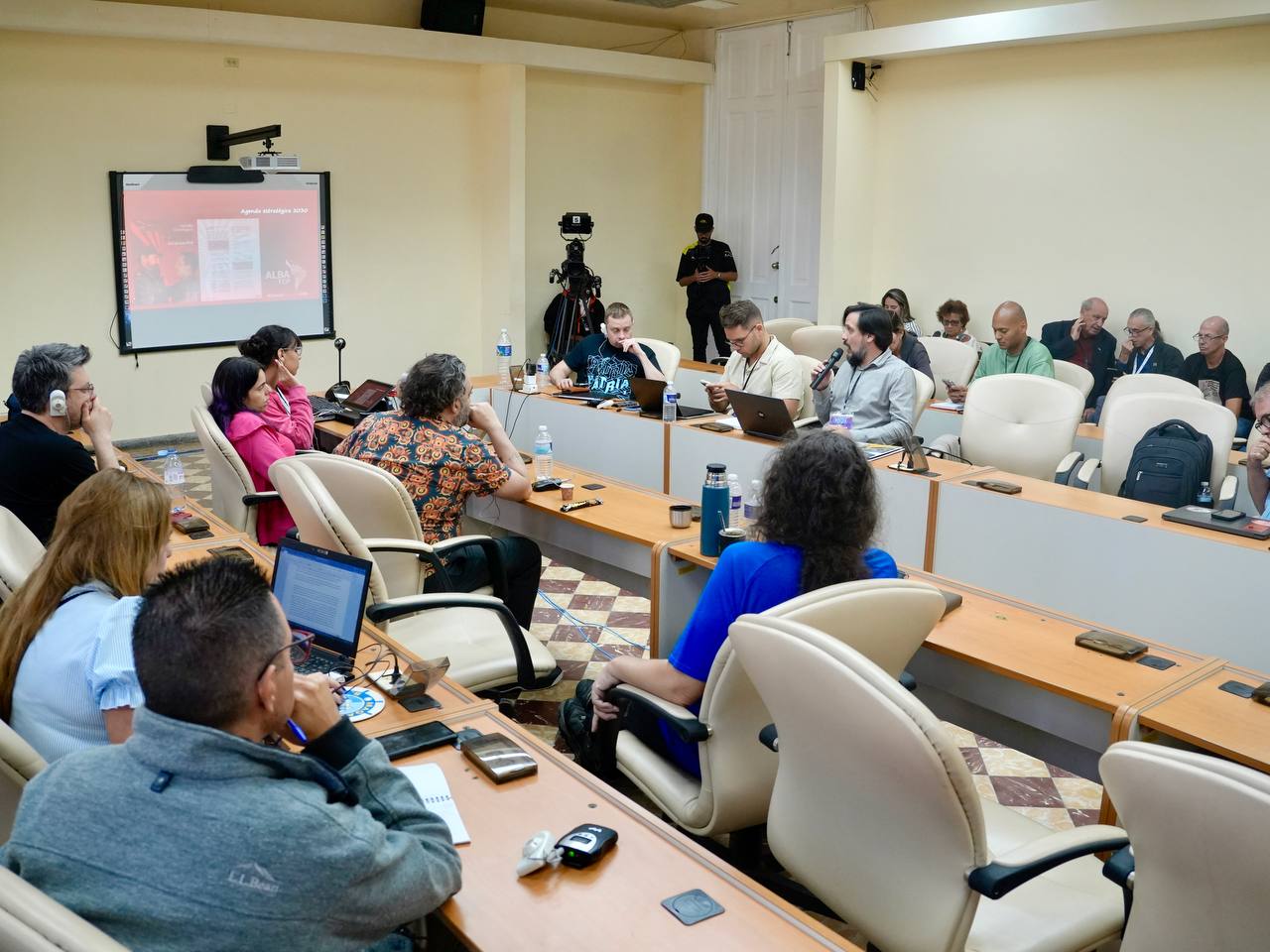Havana, March 19, 2025 – The Bolivarian Alliance for the Peoples of Our America-Peoples’ Trade Treaty (ALBA-TCP) took part this Wednesday in the 4th Patria International Colloquium, held at the University of Havana, Cuba, with the presentation ‘Political Challenges of Artificial Intelligence for the Global South.’
Henry Contreras, head of the Artificial Intelligence (AI) and Communication department at ALBA-TCP, highlighted the historical dependence on telecommunications in both Cuba and Venezuela. He referenced the installation of Cuba’s telegraphic platform by England in the last century and the laying and operation of the French cable in Venezuela—both foreign-controlled platforms that demonstrated the potential for exerting political control over a nation.
“The control of platforms promotes political control. These are cases that we must analyze in our countries as part of the Global South. With the ALBA-1 submarine cable—the first to reach Cuba, overcoming the blockade—we achieved connectivity, but today, we face new challenges,” he explained.
He emphasized the need for unity among Latin America and the Caribbean. “We must consolidate ourselves as the Global South to address the challenges posed by modern communication tools.”
Contreras also stressed that beneath artificial intelligence lies data usage, accessibility, and information interconnection. “What underpins AI is data, aiming to advance a new form of knowledge generation,” he explained, urging a reconsideration of AI’s use for the benefit of the people.
He underscored that the challenge for ALBA-TCP and the region is to create a platform for development, training, and communication that enables the unification of alternative strategies, yielding results that cater to the needs of the people.
He also addressed strategies for optimizing content within search engines. “We must be present in search engines, we must produce and categorize our information—not only to reach search engines but now to influence AI-generated datasets.”
AI, he explained, is a reality that must be considered within the region’s struggles. “AI, like technology, is not neutral; it imposes censorship, blocking certain content. This is a political struggle that presents a challenge for future generations,” he added.
Technology and AI must serve the people, fostering societal development and national growth. “Our collective challenge is to move beyond being mere consumers of technology and start creating new platforms,” stated Henry Contreras.
Global South alliances play a crucial role in promoting open-source technologies “that can be adapted to our needs and contexts (…). These must also be accessible to everyone,” he concluded.
This session also featured presentations by Araceli Acosta from Argentina; Javier Toret from Spain; Rob Lucas from the United Kingdom; Artem Chibarov from Russia; and Javier Blanco from Argentina.
